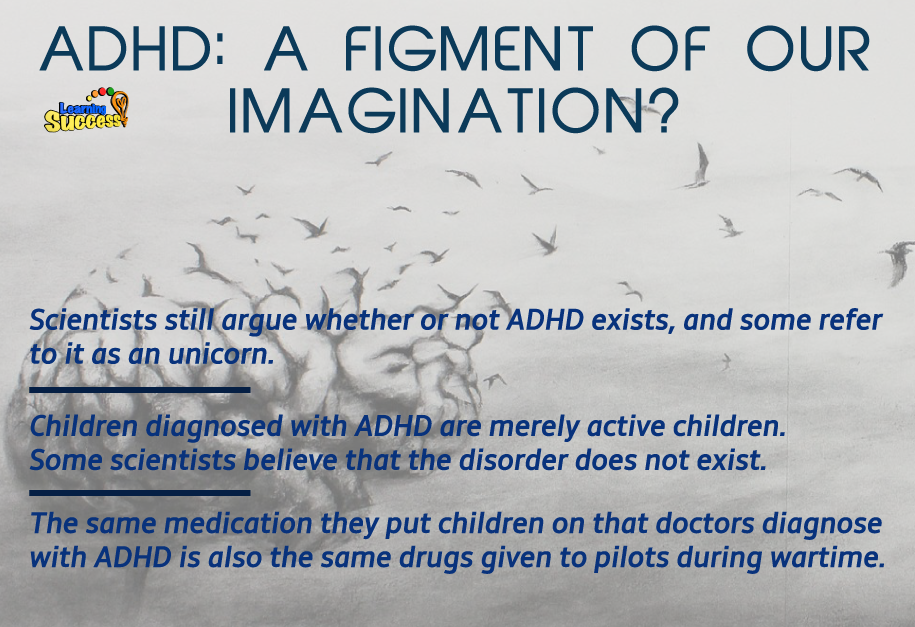
A major issue many with learning disabilities must face is the question of whether or not their disorder even exists. After all, unlike physical ailments, mental problems like Attention Deficit Hyperactivity Disorder (ADHD) are invisible to everyone but the person with them.
Is ADHD real?
An aura of mystery surrounds the concept of ADHD. Some scientists think it's like a unicorn -- everyone knows what it is, but nobody has ever seen one. Other scientists argue that ADHD existed even before the authors of the DSM-IV invented the words for it in 1994.
The articles ADHD Does Not Exist, Part 1 and Part 2 discuss the question of whether or not it's a single illness, or just a collection of different symptoms and problems. A major factor in this argument is its origins; some say it is caused by early onset stress in childhood, while others suggest it is genetic and children are born with it.

The Unicorn Camp
The unicorn camp holds that hyperactive and inattentive behavior result from stressors in the child's psychosocial environment, like stress or trauma in the child’s home, school, or even daycare. They do agree that some kids are overly energetic and have a hard time focusing, and that stimulant drugs can help people calm down and concentrate.
However, they do not think pharmaceutical drugs are the best way to help children. Instead, they go back to what they think is the origin of ADHD -- their social environment. Family therapy, behavioral therapy, and even parent training classes have shown to be sufficiently effective in reducing hyperactivity and inattentiveness, according to some studies.
The other side
Many scientists who believe ADHD is a real, palpable disorder theorize that it is a physical, biological “chemical imbalance” in a child's brain, linked to genetic causes. The majority of research has been spent on this side, along with drug treatment research.
The unicorn camp, however, argues that even a fraction of the resources spent on finding biological causes could be used for researching the psychological and social causes, and make real progress. To their point, most would agree that finding ways to treat overactive and distracted children without using drugs would be most ideal.
Key Takeaways:
A personal story
As a parent of a child with ADHD, finding the right blend of intervention can be problematic. We don't want to drug our kids to the point of lethargy, but we need to quench or harness their endless energy!
For my child, exercise and sports was a great daily outlet for his energy. Coupled with his school support, we have found ways to create small steps toward success, like keeping his textbooks in the corresponding classroom instead of in a locker, and having a "go-to" quiet place at school to refocus.
Of course, each child is different. Certainly more research and trials are needed to find therapeutic non-pharmaceutical methods.
Whatever we find to be the truth in the future, ADHD is something that must be handled with compassion and respect. For now, if you or someone you know is having difficulty with ADD or ADHD, Learning Success System can help! Find out which micro-skills need strengthening and increase learning ability by clicking here!
Do You Need help with a Learning Difficulty?
Our simple online analysis will help you get to the core of the problem and find the right solution for you.
Understanding how to help someone with a learning difficulty starts with understanding which micro-skills are affected. When you learn which of the micro-skills is the problem, you will then be on your way to solving it.
You'll also learn how to:
- Build confidence
- Enhance Learning ability
- Eliminate avoidance
- Build grit
You can get this analysis for free by filling out this simple form. This will help you get to the bottom of a learning difficulty and provide you with a solution. If you are ready to put this problem behind you click the button below and fill out the form.










